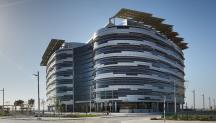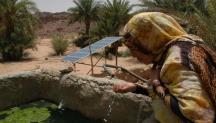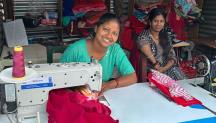

Key Enablers to Triple Renewables by 2030: Skills and Capacities
Newsletter
The International Renewable Energy Agency (IRENA) has pointed out that reaching over 11 Terawatts of installed renewables capacity as set at COP28 would necessitate overcoming identified structural barriers. One of those barriers is related to the evolving energy transitions needs that demand skilled workforce.
Well-skilled workforce filling in a broad range of occupational profiles determines the success of renewables expansion. IRENA already estimated that with the efforts to triple installed renewables capacity under its 1.5°C Scenario, renewable energy sector jobs will also triple from 2021 levels to about 40 million worldwide by 2050.
These jobs will require matching skills and education. Today, many countries are already facing shortages in tradespeople such as electricians and grid engineers. The same applies to the workforce responsible for overseeing the energy sector; policy makers, energy planners, regulators and system operators.
This situation calls for the development of institutional and human capacities through concerted action in education and skills building. To avoid significant skills gaps and to match the supply produced by the education sector with the projected demand of industries, countries pledging to reach the shared renewables target should proactively coordinate efforts. IRENA suggests governments to take the following urgent actions:
- Anticipate labour market disruptions and address workforce gaps.
- Prepare new labour market entrants; upskill and reskill existing workers.
- Allocate greater resources and training to energy sector governance (e.g. policy makers, energy planners, regulators).
A diverse energy market that provides equal access to women, youth, and minorities would reduce supply chain risks, improve energy security and ensure local value creation for commodity producers. Local value creation can be maximised by leveraging and enhancing capabilities in existing industries along the value chain, or by developing them through policies and measures that stimulate demand for certain renewable solutions and enhance capacity along the value chain.
Through its Leveraging Local Capacity series, IRENA assesses the potential for local value chain creation and the kinds of job created along the value chain. The series recommend ways to leverage domestic capabilities and build on existing capacities to maximise the benefits of renewables deployment. Each study focuses on a renewable technology, and outlines the human resources and skills requirements in the technology’s entire value chain.
Example from small-scale hydropower development shows that the technology presents opportunities for socio-economic value creation through local employment and livelihood enhancement. Small-scale hydro is a mature and fairly simple technology that requires a close knowledge of local geography and suppliers. This means that throughout the different stages of deployment – implementation, utilisation and climate adaptation – small-scale hydro systems offer an opportunity to enhance local skills, jobs and enterprise development.

Furthermore, small-scale hydro can help in the advancement of gender equality and the empowerment of rural women, thereby transforming local economies and driving inclusive growth. The availability of electricity, irrigation and drinking water generated from small-scale hydro watersheds has a significant impact on women; decreasing their vulnerability and traditional burdens of cooking, carrying water and fuelwood, working in the fields and hills, and caring for other family members.
Women’s participation in the energy transitions is yet to be enhanced. IRENA has been analysing the gender dimension of the energy transition in multiple publications and programmatic activities. Now, in collaboration with partners, IRENA invites all individuals and organisations working in the renewables sector and related industries to take part in a new survey to assess the representation and role of women, their challenges and opportunities, and recommended measures. The ongoing survey will help update the gender assessment in the sector, and shape future policies that promote gender equality.
Another group in the society that is an asset to fill in the energy transition’s workforce is youth. Recognising young people’s vital role in future decision-making and in providing innovative solutions for global energy transitions, IRENA is continuously engaging youth through a number of capacity-building initiatives on topics including governance, education and innovation. Two activities that are ongoing and focused on empowerment are:
- NewGen Renewable Energy Accelerator (NewGen): currently running its second edition, NewGen aims at supporting young entrepreneurs and innovators in driving the energy transition. The programme provides capacity building and mentorship among others to youth-led projects and start-ups that are developing innovative solutions to advance the adoption of renewables at the global level.
- GROWTH: currently ongoing in Abu Dhabi, the programme is designed to equip the next generation of energy professionals with the skills and knowledge necessary to address the energy sector’s challenges, through scheduled training sessions.
It is important however, to make sure that opportunities for capacity building and jobs are evenly distributed across regions and countries. As the energy transition progresses, addressing persistent inequality must be priority for countries worldwide.




